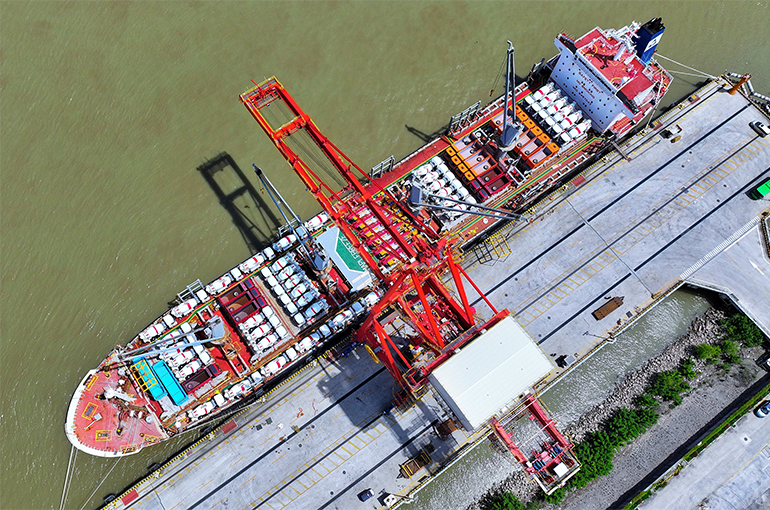 Chinese Firms Mull Options as Indonesia Plans Tariffs of Up to 200%
Chinese Firms Mull Options as Indonesia Plans Tariffs of Up to 200%(Yicai) July 2 -- Chinese companies are weighing their options after the Indonesian government announced big increases to tariffs on imported goods, with many saying that they will adjust their strategies accordingly.
Indonesian Trade Minister Zulkifli Hasan said on June 28 that the country will impose safeguard duties of 100 percent to 200 percent on imports ranging from footwear to clothing and ceramics to protect its domestic industries.
In the first five months of this year, China's trade with Indonesia totaled USD56.6 billion as exports grew 8 percent and imports fell 11 percent from a year ago. Southeast Asia’s biggest economy, with 278 million people and a gross domestic product of about USD1.37 trillion last year, imports apparel and clothing mainly from China, Vietnam, and Bangladesh.
To adapt to local demand in Indonesia, Diamond Sport International Trading has already shifted from exporting footwear to shipping shoe materials this year, Zhao Xiadi, general manager of the Beijing-based company told Yicai.
The Southeast Asian market is gradually taking shape even though orders are still bigger from Europe and North America, according to Liu Yi, general manager of Sanzhong International Business Convention and Exhibition, which organizes trade fairs in Indonesia.
Many Indonesian retailers are slowly setting up procurement centers and offices in China to buy directly, but higher tariffs would slow that growth, Liu said, adding that any decisions by Chinese businesses to build plants in Indonesia hinges on their specific situations and long-term plans.
Some are taking a wait-and-see approach. An owner of an international footwear and apparel brand said that both Indonesia and Vietnam are key destinations for some Chinese shoemakers to relocate their supply chains, and those brands will pay close attention to tariff policies. Supply chains are becoming more decentralized due to trade conflicts and geopolitics, the person said.
Chinese lubricants maker Amer Technology has factories in Southeast Asia, including Vietnam and Indonesia, said Chairman Wang Xiaolong. Indonesia is the best choice for the scale of the local market but Thailand and Vietnam have more highly developed industrial chains with better supporting facilities, he added.
Editor: Emmi Laine